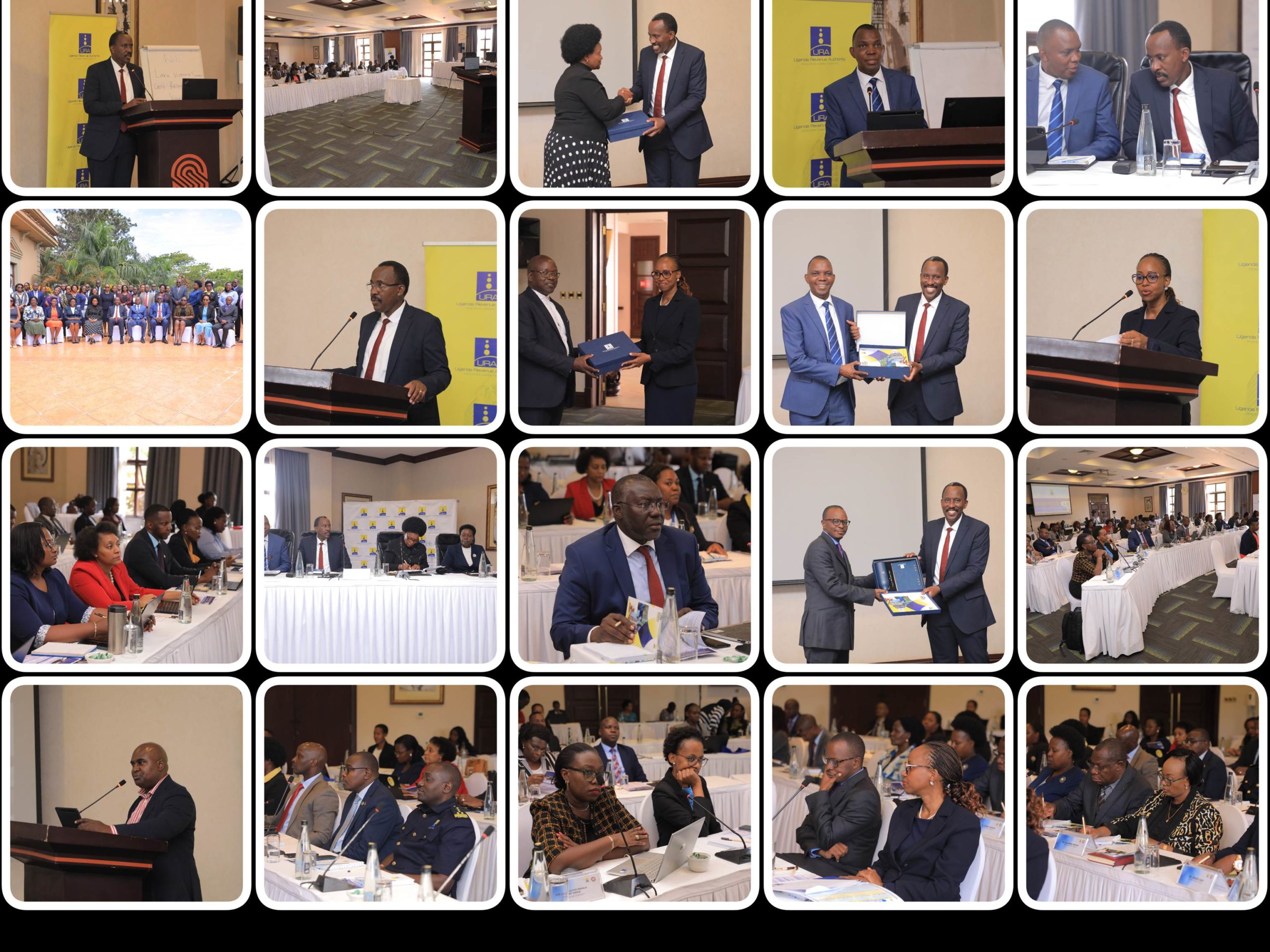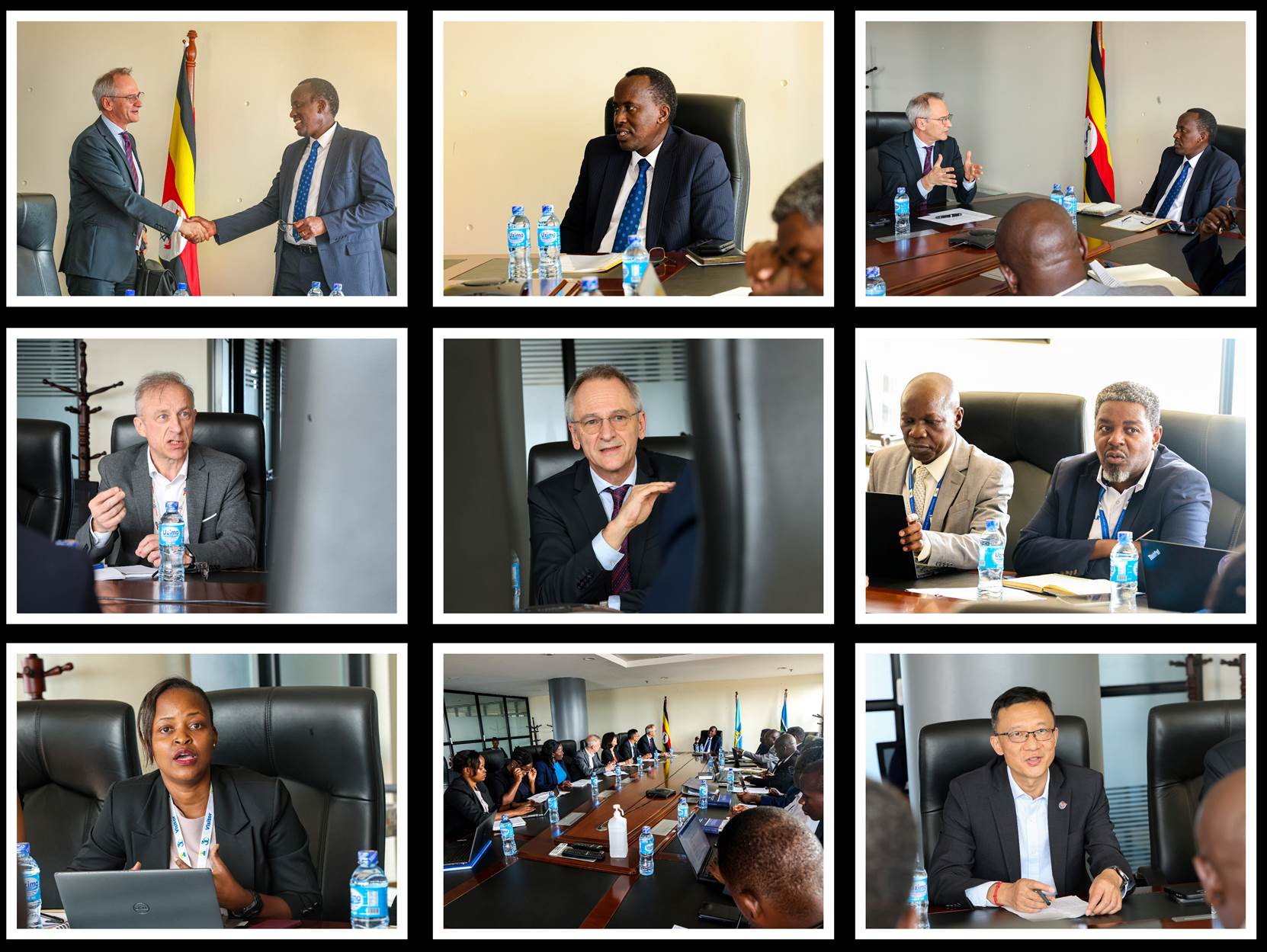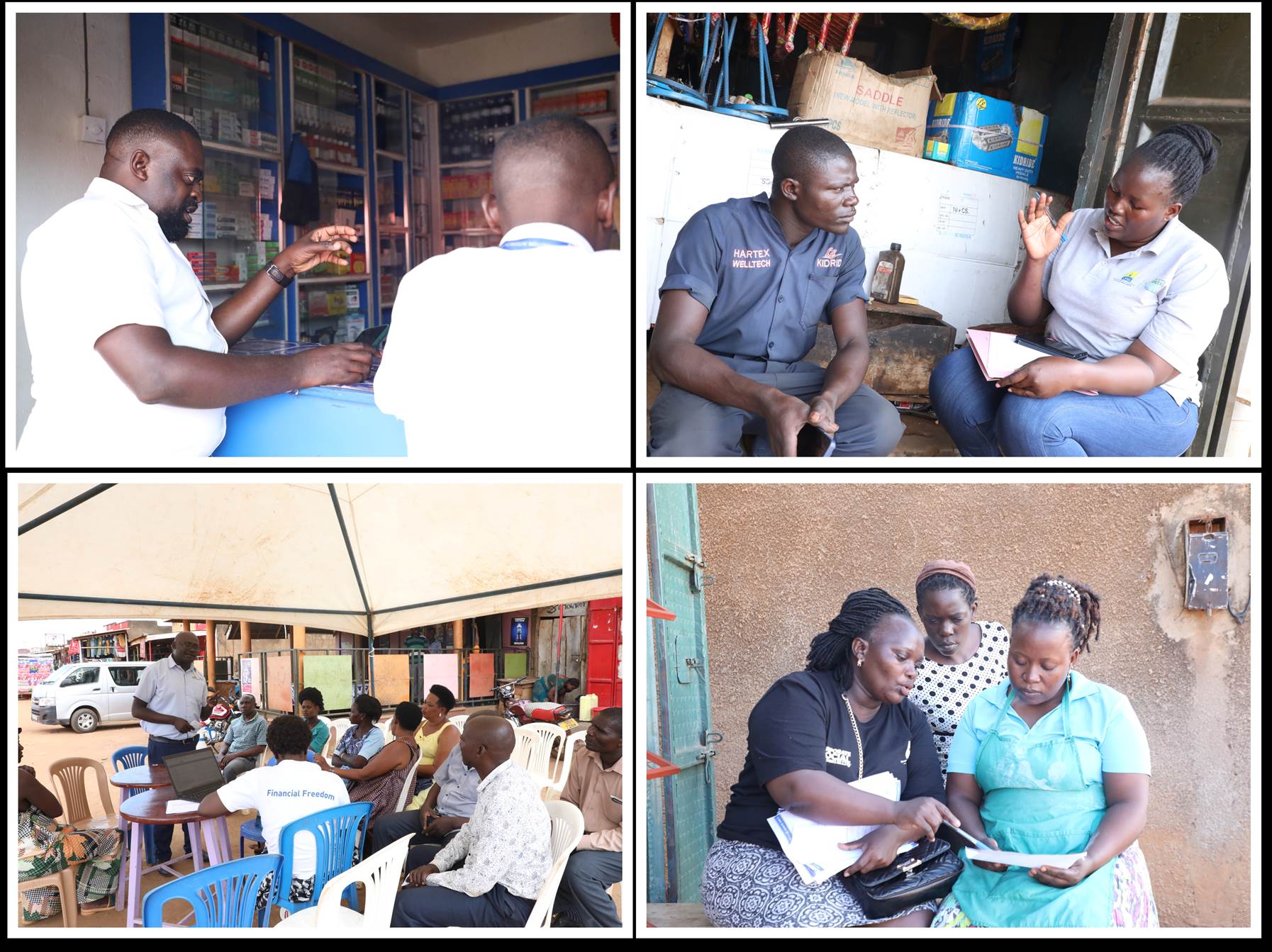By Irene Kabakama
Uganda Revenue Authority has met with some of Uganda’s leading legal practitioners to discuss the strategies and policies in revenue mobilization.
Top on the agenda were aspects of customs and domestic taxes, including the valuation of goods, rules, and certificates of origin, offense management and collection tools like digital tax stamps, and the Electronic Fiscal Receipting and Invoicing Solution (EFRIS).
This was during the 12th Annual Taxation Training for the Justices of the Courts of Judicature and Members of the Tax Appeals Tribunal at the Kampala Serena Hotel in Kigo. The training was organized by the Authority and the Judicial Studies Institute under the theme “The unique aspects and emerging trends in domestic taxes and customs management.”
Speaking at the event, URA Commissioner General John Rujoki Musinguzi emphasized that Uganda’s economic independence can only be achieved through solidifying policies, laws, and tax administration.
He commended the Judiciary for supporting revenue mobilization through adjudicating disputes between URA and taxpayers and ensuring that the tax system operates efficiently, transparently, and fairly.
He called on them to “put their best foot forward’ and support the tax body in achieving its revenue target this financial year.
This is in light of the over 500 tax-related cases before the courts of judicature, as highlighted by the commissioner of Legal Services and Board Affairs, Catherine Donovan Kyokunda.
Honorable Justice Alexandra Nkonge Rugadaya, the acting principal judge, urged the judges and members of the tribunal to deepen their understanding of tax laws, noting that their role in tax administration extends beyond adjudication to include social welfare and economic stability.
“Since tax administration is not devoid of disputes when tax disputes arise, the role of implementation and enforcement of tax falls into the hands of the judiciary. Therefore, understanding and applying tax laws is essential to ensuring fiscal independence fairly and equitably,” she emphasized.
The Justice also called for the judiciary to be involved in the amendment of tax laws, saying this would inform decisions made on tax disputes.
In her remarks, Catherine Kyokunda, the Commissioner of Legal Services and Board Affairs at URA, called for more collaboration between the legal community and the tax body.
“I implore you to develop the spirit of collaboration and intellectual inquiry as we engage with enthusiasm, curiosity, and a steadfast dedication to upholding the principles of justice and equity,” she said.
Kyokunda underscored the essence of the engagement, noting that such dialogue facilitates the formulation of policies that contribute to Uganda’s economic independence.
“As custodians of justice and interpreters of the law, it’s important for us to understand and interpret taxation legislation. This is crucial because our decisions have the power to shape the fiscal landscape, promoting fairness, equity, and adherence to the rule of law.”










